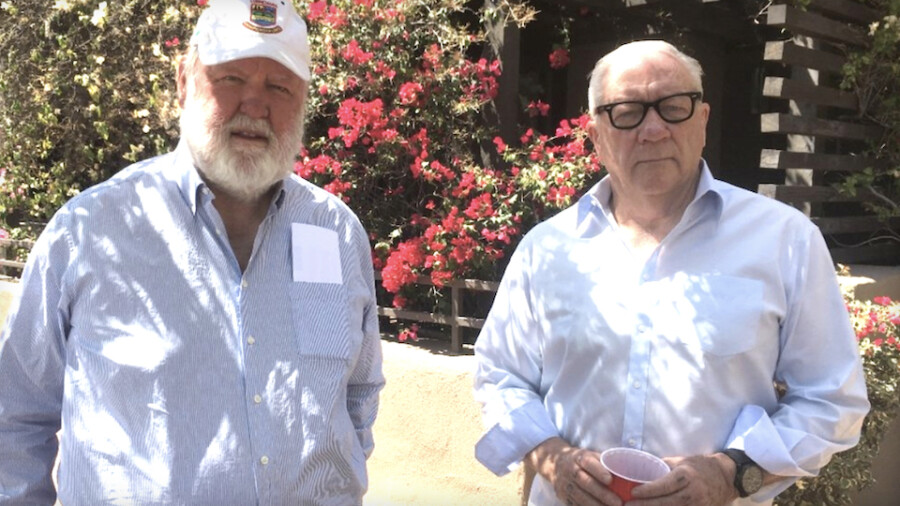
PHOENIX — The first full week of the trial of former Backpage.com owners Mike Lacey and Jim Larkin has wrapped up in Phoenix with the first day of testimonies by federal government witnesses.
Lacey, Larkin and others are accused by the government of a number of alleged crimes over their ownership of the popular adult-oriented classifieds website.
Backpage was shuttered and seized by federal authorities in 2018, days before President Trump signed FOSTA into law. The Backpage case had been used by several political figures, including the current U.S. Vice-President, as an example of the need for the FOSTA Section 230 exception.
Federal prosecutors accuse the company of “participation in a conspiracy to facilitate and promote prostitution,” and also of money laundering, human trafficking and other charges, which are strongly disputed by their defense.
The trial is presided over by Arizona federal judge Susan Brnovich, wife of the current state Attorney General Mike Brnovich, who is currently running in the Republican primary for U.S. Senator. Judge Brnovich refused to recuse herself from the Backpage trial, even though her husband has made repeated prejudicial statements against the shuttered classified site.
Last Friday, after jury selection, federal prosecutor Reggie Jones gave the government’s opening arguments at the Sandra Day O’Connor U.S. Courthouse in downtown Phoenix.
Phoenix-based journalist Stephen Lemons has been covering the case closely since its inception. He currently writes for Front Page Confidential, the last remaining outlet of the once-powerful Village Voice Media organization headed by Lacey and Larkin.
Cambria: ‘This Is About the First Amendment’
On Friday via Twitter, and then on Saturday via Front Page Confidential, Lemons described Jones’ opening statement from the point of view of the journalist closest to the defendants.
The federal prosecutor, Lemons wrote, “essentially accused the defendants of crimes committed by others, with which the defendants are not charged and had nothing to do with; i.e., child sex trafficking. He also introduced evidence that should be excluded, defense attorneys said.”
On Friday, Lacey’s attorney Paul Cambria told the Buffalo News that “the Backpage trial is about the First Amendment, even though the government doesn’t want it to be. This case has the potential to be very damaging to newspapers and other organizations that sell want ads. Is it fair to hold a newspaper editor or someone like Mark Zuckerberg at Facebook responsible if someone takes out an ad and then uses it to commit criminal activities? The person who commits the crime should be punished, not the person who hosts the advertisement.”
That day, after the prosecutor finished his presentation, Cambria and the other defense attorneys advanced a motion to declare a mistrial, based on the tone and allegations made by Jones, which lingered on “human trafficking” issues and examples that were not part of the trial.
Judge Brnovich requested that the parties submit briefs about the mistrial motion and the court recessed until Wednesday.
A Judge Who Continually Denies Defense’s Motions
On Wednesday, Judge Brnovich denied the motion for mistrial and the defense presented its opening statement, stressing the First Amendment issues. Another recesse was forced when one of the co-defendants said he was not feeling well and he was tested for COVID; the trial resumed after his negative result was confirmed.
Today the prosecution brought on their first witness, a woman who alleged she had been the victim of human trafficking and that her trafficker, and also herself, had uploaded ads for sexual services to Backpage.
The ads the witness mentioned are not any of the ads cited on the indictment, but Judge Brnovich — in another of her repeated rulings against defense motions — allowed her testimony because it could go to prove a “conspiracy” between the trafficker and the defendants, who never met or knew each other, and thus violate the so-called Travel Act.
